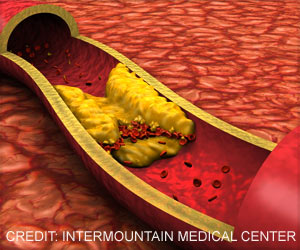TAVR yielded lower mortality rates after three years compared with medical therapy in patients deemed to be ineligible for conventional aortic valve surgery, finds a study.

Inoperable patients with severe symptomatic aortic stenosis (AS) were randomly assigned to transfemoral TAVR or to standard therapy (which often included balloon aortic valvuloplasty) in the PARTNER trial. Data on three-year outcomes were analyzed according to intention to treat (ITT).
A total of 358 patients underwent randomization at 21 centers. The Kaplan Meier estimated rates of death at three years were 54.1 percent in the TAVR group and 80.9 percent in the standard-therapy group (P<0.0001); corresponding rates of cardiac death were 41.4 percent and 74.5 percent (P<0.0001). The survival advantage associated with TAVR that was initially observed at one year persisted during the subsequent years.
"After three years of follow-up, the benefits of TAVR were sustained as measured by all cause mortality, cardiovascular mortality, repeat hospitalization, and functional status," said one of the investigators, E. Murat Tuzcu, MD. Dr. Tuzcu is Professor of Medicine and Vice-Chairman of the Department of Cardiology in the Sydell and Arnold Heart & Vascular Institute at the Cleveland Clinic.
"Three-year data continue to support the role of TAVR as the standard-of-care for symptomatic patients with aortic stenosis who are not surgical candidates," said Dr. Tuzcu.
The results of PARTNER Cohort B Three Year will be presented on Wednesday October 24 at 12:17 PM EST in the Main Arena (Hall D) of the Miami Beach Convention Center.
Advertisement











